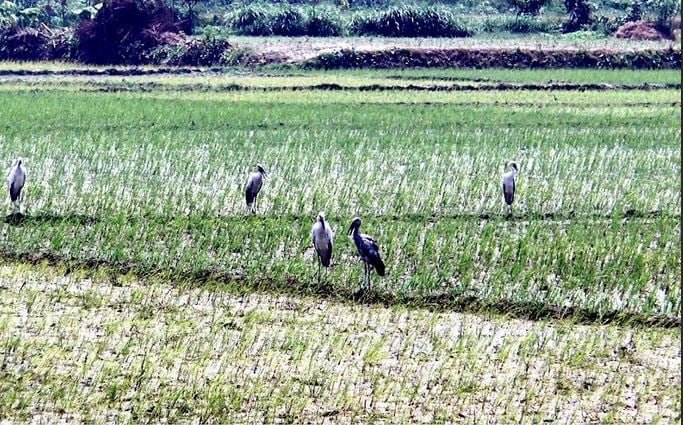Kushtia, 3 March 2025 (BSS): Due to the lack of effective measures to tackle extreme heat in the face of global warming, life, agriculture, and biodiversity in Kushtia, Chuadanga, and Meherpur have been worsening every dry season.
The three districts, key players in national food production, face severe threats to agriculture and biodiversity due to irrigation shortages. The Ganga-Kapotakhya irrigation project’s pump station has been out of service for the last six years, leaving water sources for irrigation nearly nonexistent. As a result, agricultural irrigation relies heavily on groundwater.
According to agriculture department data, nearly 232,000 hectares of fertile land across these three districts are dependent on 583 deep tube wells, 327 shallow wells, and 113,951 shallow tube wells for irrigation. However, these systems are depleting the already stressed underground water reserves.
Experts urge immediate action on planned water management strategies to avert further crisis.
Rabia Khatun of Kabirbadia village in Kushtia’s Mirpur Upazila told BSS: “Is the water crisis improving even a little? Due to lack of water, I can’t irrigate my rice fields, which are drying out. Now I’m worried about what to feed my children. The water in our tubewell is also drying up. What should I do for the cattle and poultry?”
Farmer Mirarul Haque from Fatepur village, Meherpur, stated: “I face the most difficulties in the dry season, relying on shallow pump wells for irrigation. Every year, the water levels drop, and now it takes 2 to 5 hours to irrigate one bigha of land, yet I can’t even recover the cost of cultivation. If the government installs deep tube wells, it might help.”
Environmentalist Gautam Kumar Roy expressed concern over the long-term impact, stressing the importance of preserving water resources. “Bangladesh is fortunate to have easy access to fresh drinking water, unlike many developed nations. But without integrated planning, we are heading towards desertification,” he said.
Kushtia’s Public Health Executive Engineer Ibrahim Mohammad Taimur called for an urgent, coordinated planning approach across water-related departments to mitigate the environmental crisis. He recommended preserving surface water and installing deep tube wells to safeguard underground freshwater reserves.
Experts warn that the situation will only worsen, with global temperatures set to rise by an additional 3°C by 2070, potentially depleting groundwater reserves in the southwestern regions of the country.
The Bangladesh Agricultural Development Corporation (BADC) has taken steps to reduce the cost of agricultural production by implementing irrigation from surface water using deep tube wells and low-lift pumps. Farmers are calling for a significant expansion of such systems.
In Chuadanga’s Digri village, farmer Delwar Hossain shared his experience: “Our land, despite being fertile, was long affected by irrigation problems due to its elevation. Two years ago, the BADC’s Mujibnagar irrigation project installed deep tube wells, turning the area into triple-crop land. The irrigation cost has decreased significantly.”
Farmer Taher Uddin from Rashikpur village in Meherpur added, “Two years ago, the BADC set up an irrigation system using water from the Bhairab river.”
